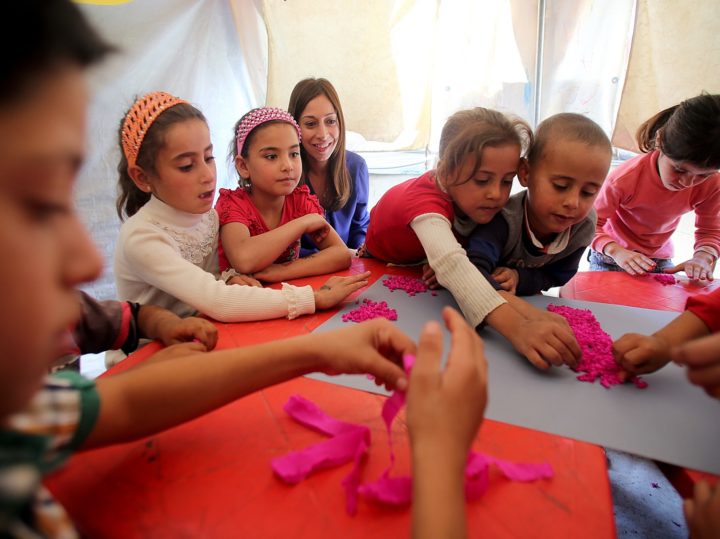Increasing numbers of people are seeking refuge from conflict and poverty. But many go on to build happy, resilient lives in new communities. Dr Tony Capstick, a linguist who’s worked with Syrian refugees, has devised teaching tools and exhibitions that empower teachers worldwide to better support people as they resettle.
When instability and conflict displace people, language can quickly become a barrier to work, communication and integration. Dr Capstick has found ways to educate both teachers and students that highlight the role of language in fostering resilience. He now provides policy guidance to the UN Refugee Agency and the UK’s All-Party Parliamentary Group on Syria.
Working with the British Council, Dr Capstick developed the ‘Language for Resilience’ exhibition which showed in London, Reading and Lebanon. And the same collaboration also spawned an online course that in 2018 attracted 2,700 participants in 137 countries worldwide.
The displays highlighted how refugees study English in camps and the methods and objects that support their learning. The audience ranged from teachers and policy makers to members of the UN Refugee Agency, UNICEF and the Foreign and Commonwealth Office. Dr Capstick’s undergraduate students also used the exhibitions to broaden their understanding and to engage with local communities in Reading.
The Futurelearn course Migrants and Refugees in Education: A toolkit for Teachers provides activities and learning resources to help teachers working with migrants and asylum seekers to combat the stereotypes that students face.
Now translated into Arabic and Spanish for use in the Middle East, Ethiopia and South America, Dr Capstick’s research continues to empower teachers globally to support refugees in the challenges they face as they build resilience in their new lives.
Partners: British Council, Mercy Corp (US NGO), United Nations High Commission for Refugees, Unicef, German Academic Exchange Service
Funders: Mercy Corp (US NGO), United Nations High Commission for Refugees, Unicef, The MADAD Trust Fund (EU fund)
Judges’ comments: “The online open course, virtual research hub, exhibition and workshops are all successfully engaging a range of stakeholders to ensure academic research leads to real world benefits.”
Shortlisted for the University Research Engagement and Impact Awards 2019
First published: June 2019

